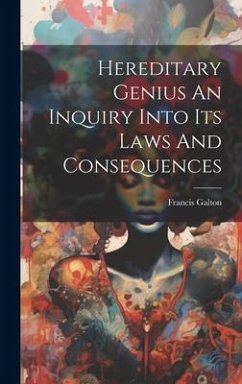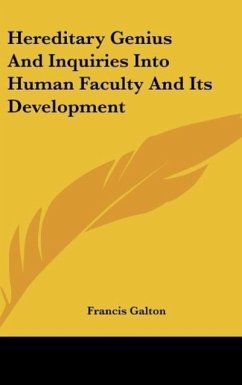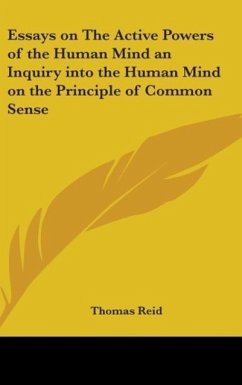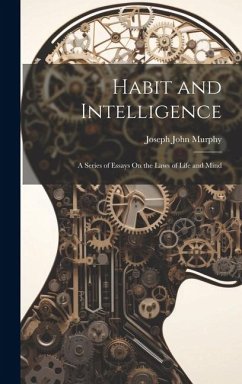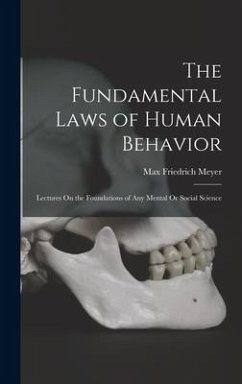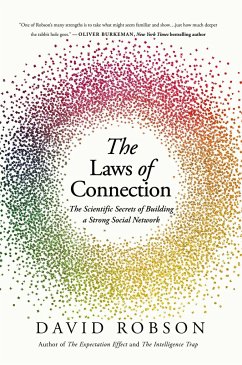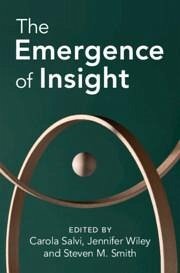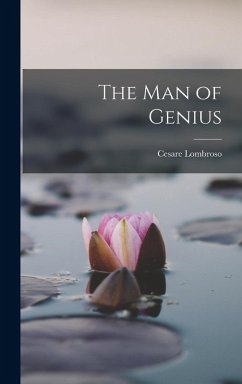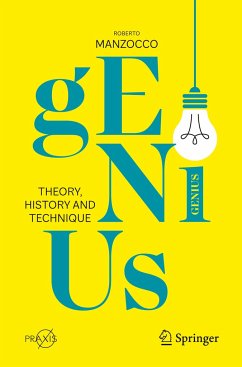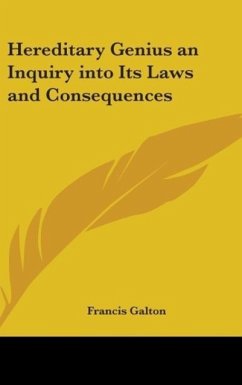
Hereditary Genius an Inquiry into Its Laws and Consequences
Versandkostenfrei!
Versandfertig in 1-2 Wochen
39,99 €
inkl. MwSt.

PAYBACK Punkte
20 °P sammeln!
1869. Galton, an explorer and anthropologist, is known for his pioneering studies of human intelligence. Influenced by the work of his cousin Charles Darwin, he coined the term eugenics (from the Greek eugenes or wellborn) and devoted the latter part of life to applying Darwinian science to develop theories about heredity and good or noble birth. In this volume he makes the case for his theory of hereditary genius. Contents: Classification of Men According to Their Reputation; Classification of Men According to Their Natural Gifts; Comparison of the Two Classifications; Notation; The Judges of...
1869. Galton, an explorer and anthropologist, is known for his pioneering studies of human intelligence. Influenced by the work of his cousin Charles Darwin, he coined the term eugenics (from the Greek eugenes or wellborn) and devoted the latter part of life to applying Darwinian science to develop theories about heredity and good or noble birth. In this volume he makes the case for his theory of hereditary genius. Contents: Classification of Men According to Their Reputation; Classification of Men According to Their Natural Gifts; Comparison of the Two Classifications; Notation; The Judges of England between 1660 and 1865; Statesmen; English Peerages, Their Influence Upon Race; Commanders; Literary Men; Men of Science; Poets; Musicians; Painters; Divines; Senior Classics of Cambridge; Oarsmen; Wrestlers of the North Country; Comparison of Results; The Comparative Worth of Different Races; Influences that Affect the Natural Ability of Nations. See other titles by this author available from Kessinger Publishing.



